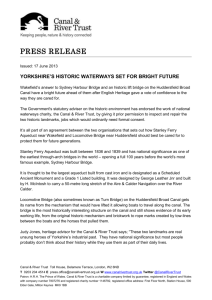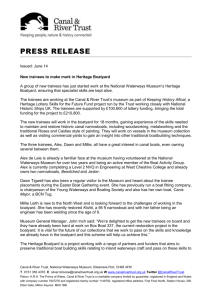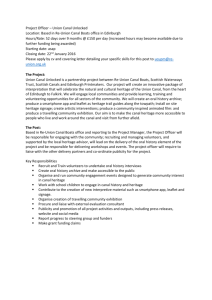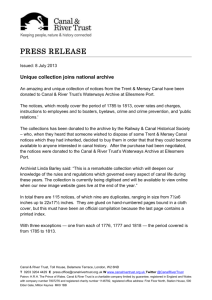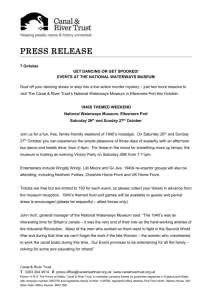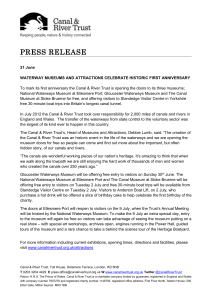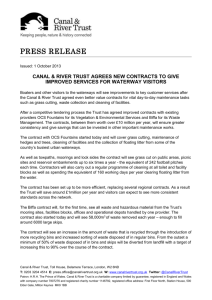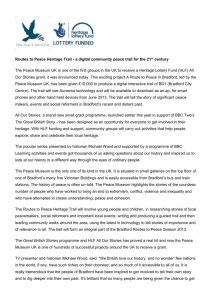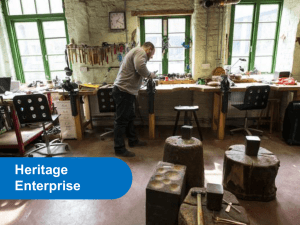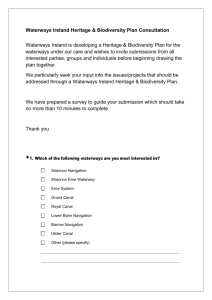Rare barge craned out of canal for conservation
advertisement
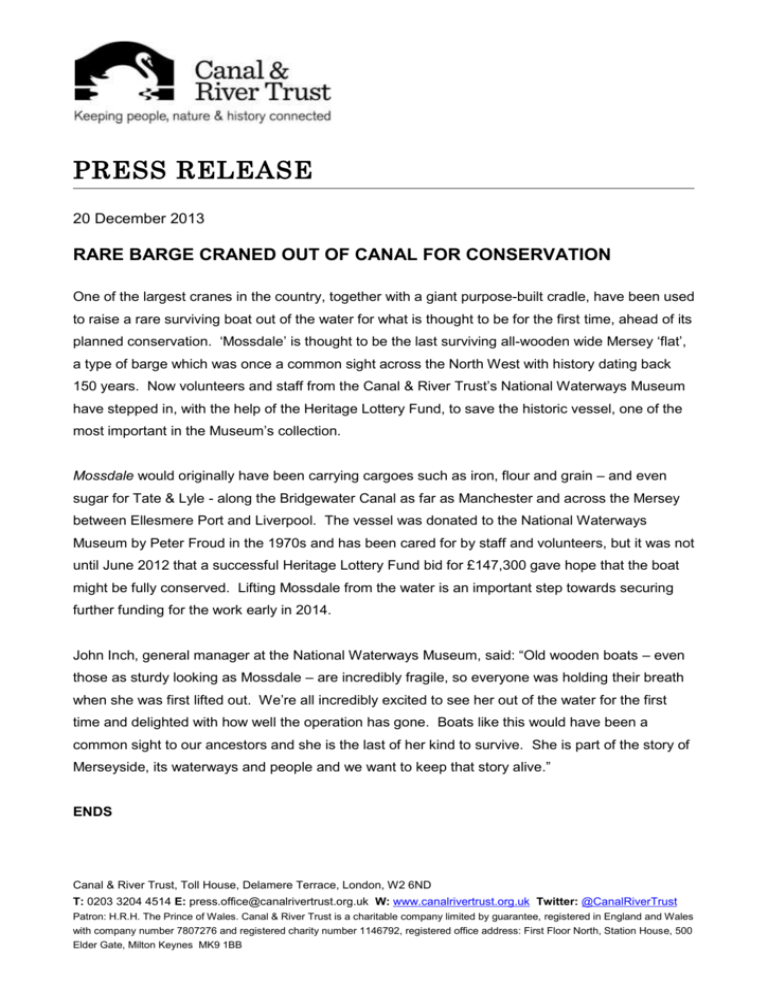
PRESS RELEASE 20 December 2013 RARE BARGE CRANED OUT OF CANAL FOR CONSERVATION One of the largest cranes in the country, together with a giant purpose-built cradle, have been used to raise a rare surviving boat out of the water for what is thought to be for the first time, ahead of its planned conservation. ‘Mossdale’ is thought to be the last surviving all-wooden wide Mersey ‘flat’, a type of barge which was once a common sight across the North West with history dating back 150 years. Now volunteers and staff from the Canal & River Trust’s National Waterways Museum have stepped in, with the help of the Heritage Lottery Fund, to save the historic vessel, one of the most important in the Museum’s collection. Mossdale would originally have been carrying cargoes such as iron, flour and grain – and even sugar for Tate & Lyle - along the Bridgewater Canal as far as Manchester and across the Mersey between Ellesmere Port and Liverpool. The vessel was donated to the National Waterways Museum by Peter Froud in the 1970s and has been cared for by staff and volunteers, but it was not until June 2012 that a successful Heritage Lottery Fund bid for £147,300 gave hope that the boat might be fully conserved. Lifting Mossdale from the water is an important step towards securing further funding for the work early in 2014. John Inch, general manager at the National Waterways Museum, said: “Old wooden boats – even those as sturdy looking as Mossdale – are incredibly fragile, so everyone was holding their breath when she was first lifted out. We’re all incredibly excited to see her out of the water for the first time and delighted with how well the operation has gone. Boats like this would have been a common sight to our ancestors and she is the last of her kind to survive. She is part of the story of Merseyside, its waterways and people and we want to keep that story alive.” ENDS Canal & River Trust, Toll House, Delamere Terrace, London, W2 6ND T: 0203 3204 4514 E: press.office@canalrivertrust.org.uk W: www.canalrivertrust.org.uk Twitter: @CanalRiverTrust Patron: H.R.H. The Prince of Wales. Canal & River Trust is a charitable company limited by guarantee, registered in England and Wales with company number 7807276 and registered charity number 1146792, registered office address: First Floor North, Station House, 500 Elder Gate, Milton Keynes MK9 1BB Page 2 of 2 Pictures of the lift attached together with an archive image (please credit The Waterways Archive: Photographer Bill Leatherwood) For further media requests please contact: Michelle Kozomara, Campaigns Manager, Canal & River Trust t 01606 723854 m 07917899222 e michelle.kozomara@canalrivertrust.org.uk Notes to editors: The Canal & River Trust is the guardian of 2,000 miles of historic waterways across England and Wales. We are among the largest charities in the UK, maintaining the nation’s third largest collection of Listed structures, as well as museums, archives, navigations and hundreds of important wildlife sites. We believe that our canals and rivers are a national treasure and a local haven for people and wildlife. It is our job to care for this wonderful legacy – holding it in trust for the nation in perpetuity and giving people a greater role in the running of their local waterways www.canalrivertrust.org.uk Heritage Lottery Fund Using money raised through the National Lottery, the Heritage Lottery Fund (HLF) aims to make a lasting difference for heritage, people and communities across the UK and help build a resilient heritage economy. From museums, parks and historic places to archaeology, natural environment and cultural traditions, we invest in every part of our diverse heritage. HLF has supported almost 35,000 projects with more than £5.3bn across the UK. www.hlf.org.uk. Window on the World project Supported by Heritage Lottery Fund, the ‘Window on the World’ project aims to secure the future of two of the most important boats in the Museum’s national collection, ‘George’ and ‘Mossdale’ and redevelop a historic slipway for visitors to explore. The project seeks to inspire new audiences with the story of Ellesmere Port’s role as a significant transhipment port and an industrial powerhouse for the North West.
